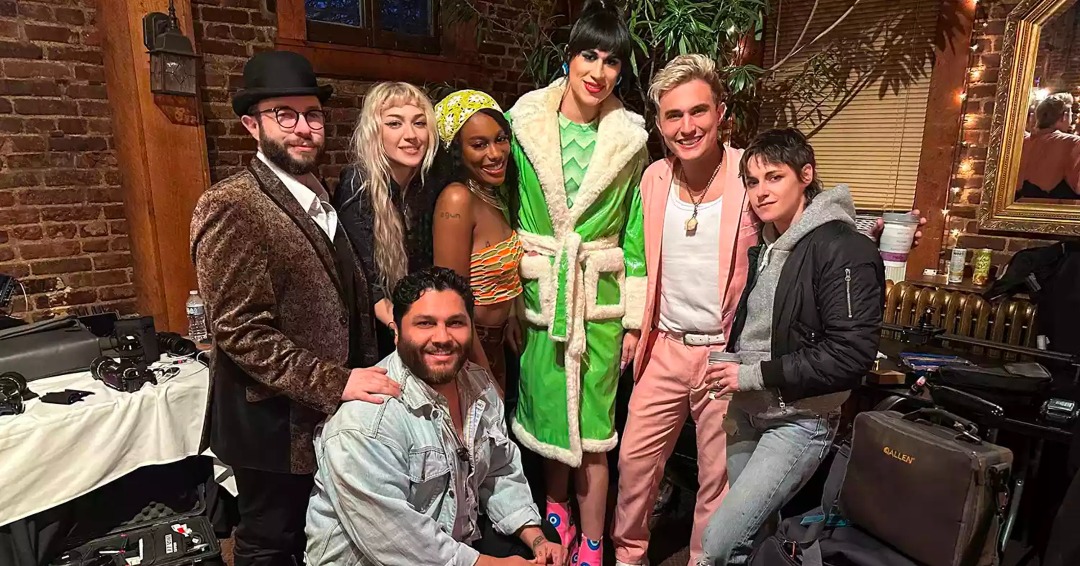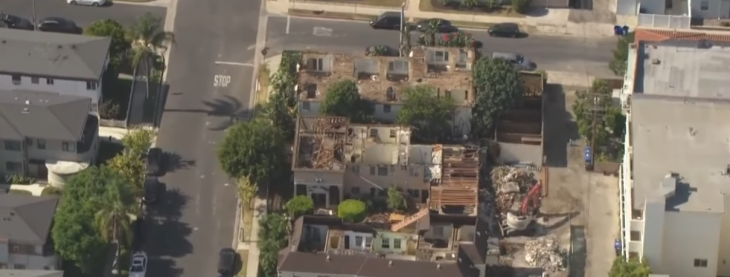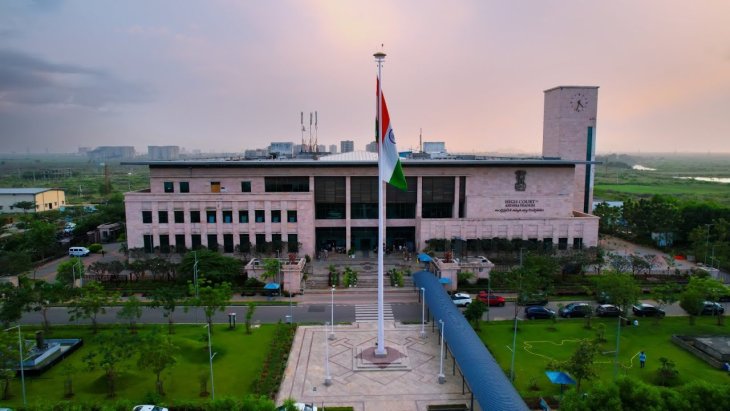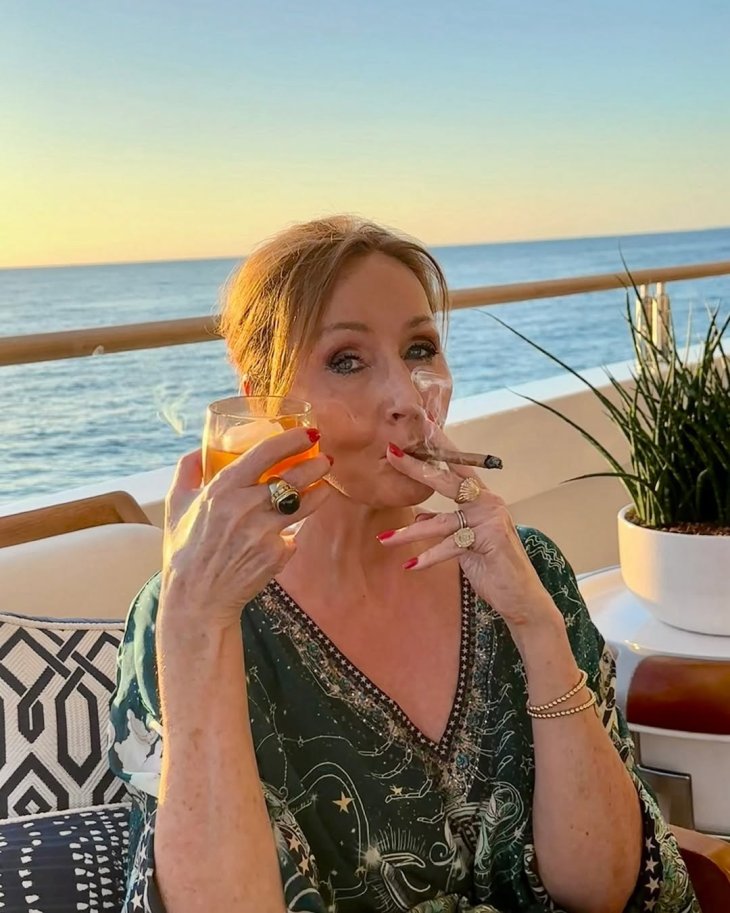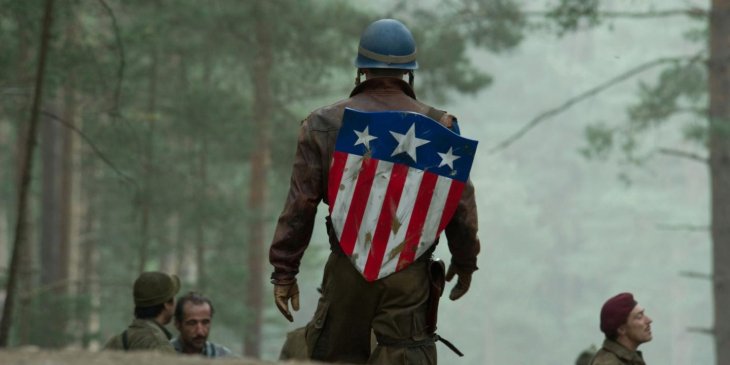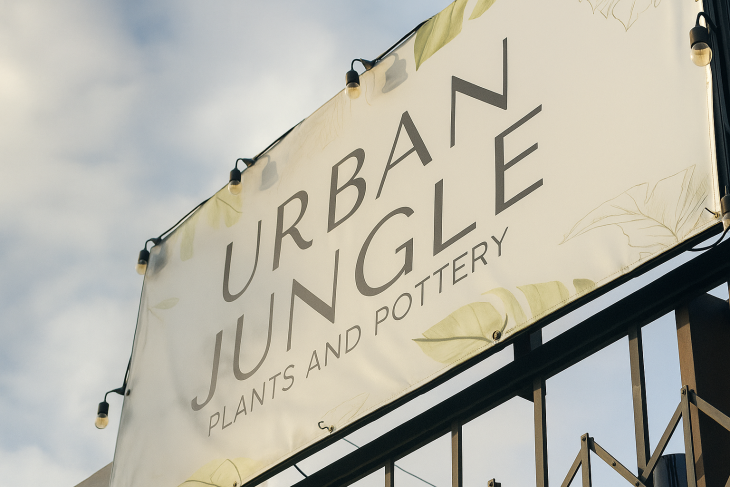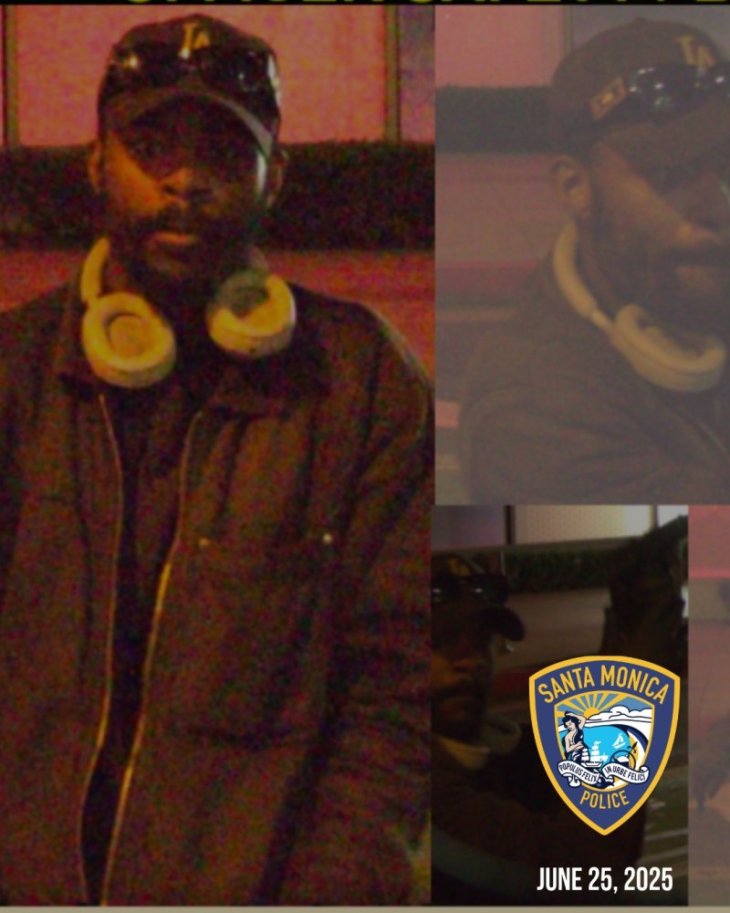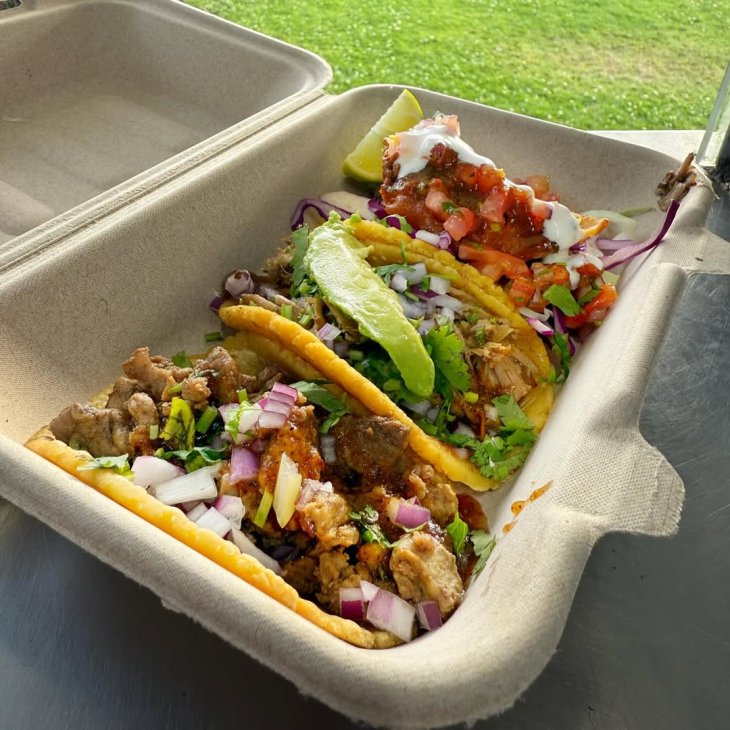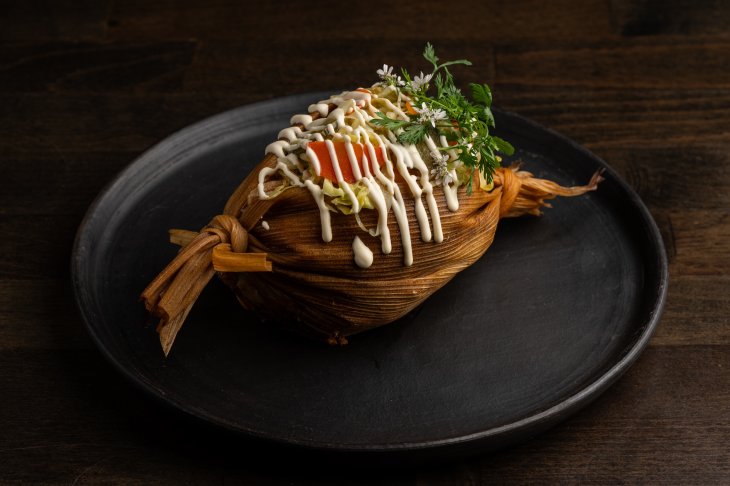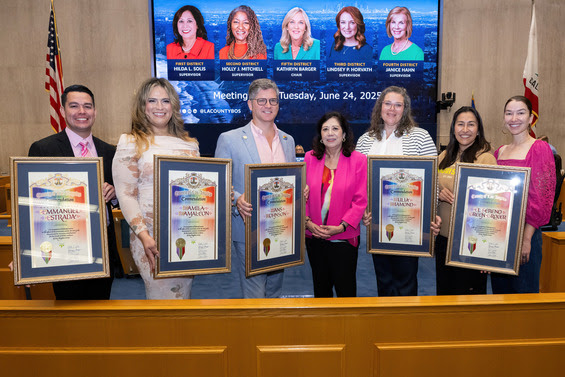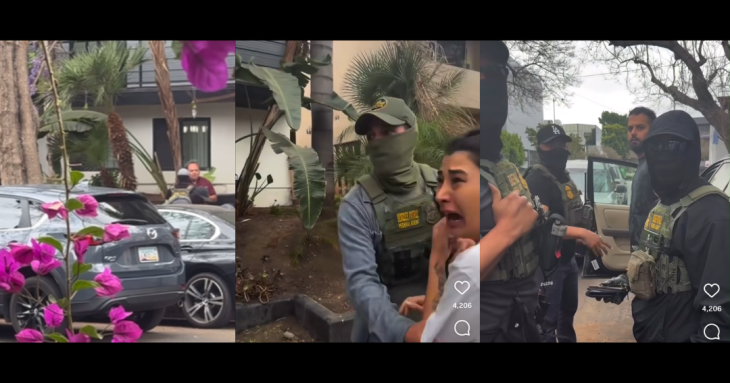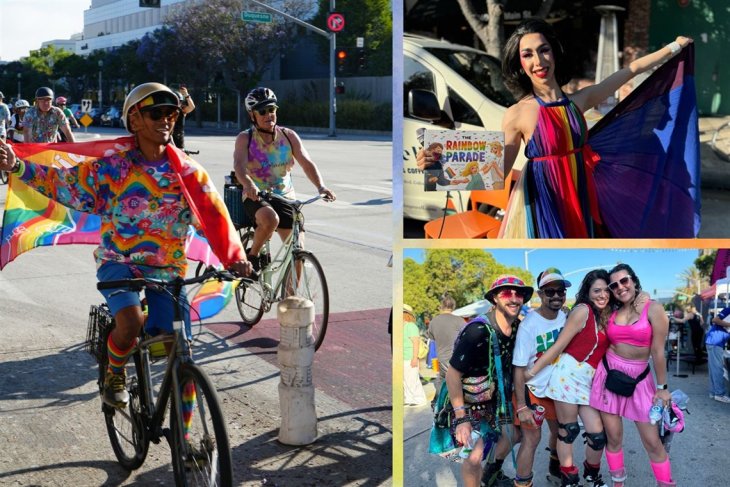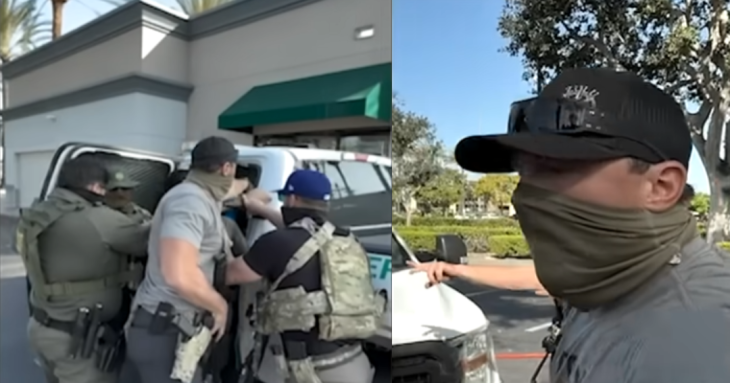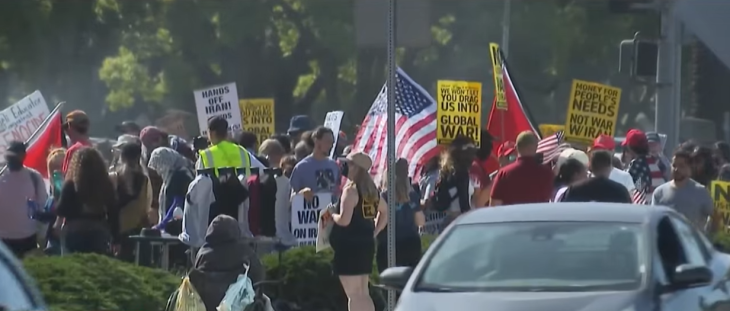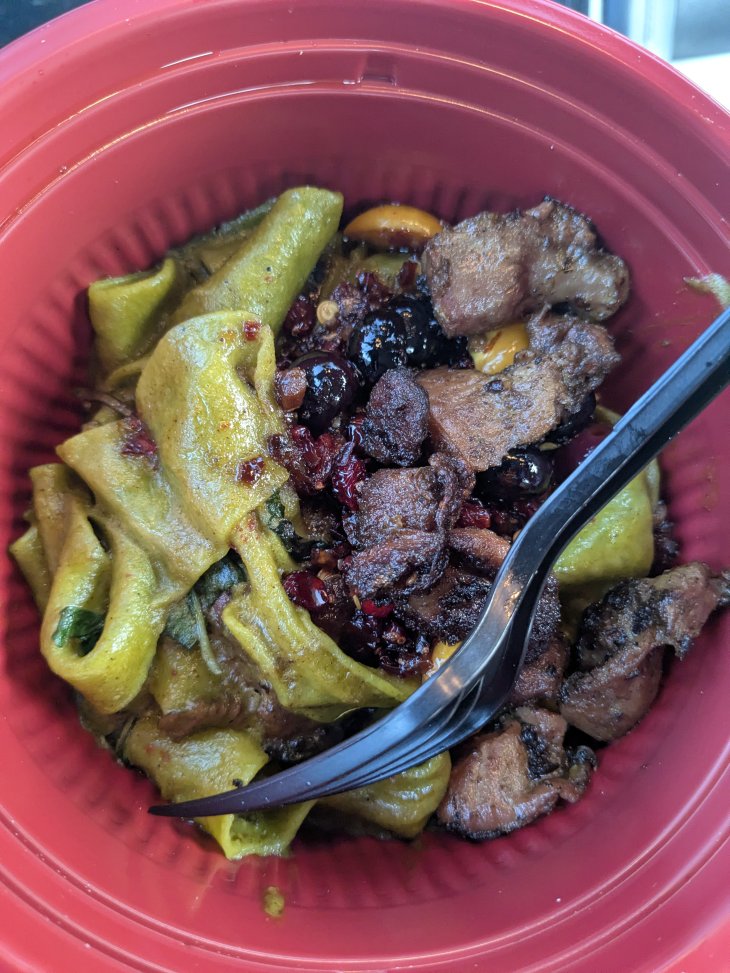A Spooky Interview with the Creators and Executive Producers of the Show
“Living for the Dead” is the new queer ghost-hunting show that’s more than just scaring yourself in the dark. It comes from an idea from executive producer Kirsten Stewart where she described a show that would be the “gay Scooby Doo,” and Stewart also provides the narration for the show.
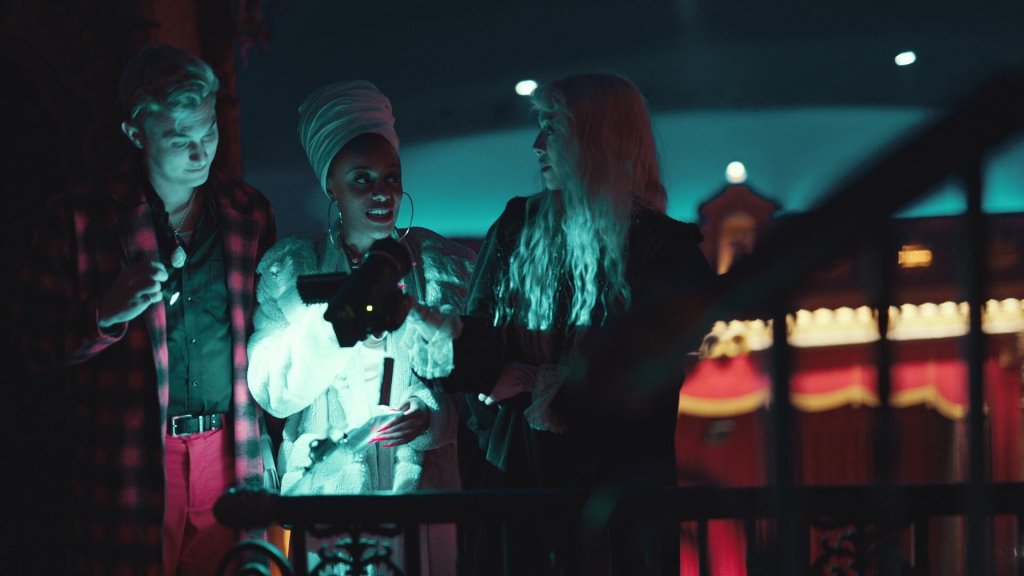
The show features “five fabulous, queer ghost hunters Alex Le May, Juju Bae, Ken Boggle, Logan Taylor, and Roz Hernandez, who all have special talents relating to paranormal investigation. In the show, the fabulous five will “criss-cross the country, helping the living by healing the dead. As they explore some of the world’s most infamous haunted locations, they’ll shed light on those not seen and illuminate untold stories. Together, they’ll push past boundaries to bring acceptance to the misunderstood – living and dead. This is “Living For The Dead,” Ghost Hunties!”
I spoke with David Collins, co-founder of Scout Productions, and Rob Eric, Chief Creative Officer at Scout, who are both executive producers on the show, about what the show is really about, casting the Ghost Hunties, and how “Living for the Dead” is different from any other ghost hunting show. “Living for the Dead” is streaming on Hulu as part of this year’s Huluween celebration.
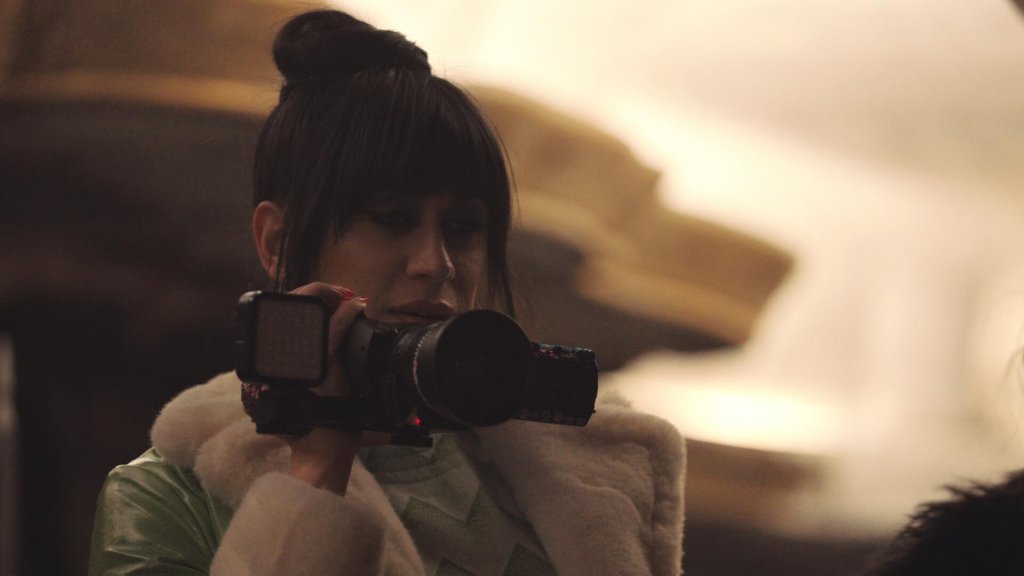
DC: The show came to be in a really fun and original way, and I don’t know if you know or not, but Kristin [Stewart] and her best friend CJ came to us with a kernel of a really great idea which was queer ghost hunting. Gay ghost hunters, is it a thing? What do they do? They threw out the idea of what does a gay Scooby Doo look like?
RE: We’re in!
DC: We’re in! Exactly. We knew we were in for from “gay Scooby Doo” forward.
DQ: That pretty much sold the idea right there, didn’t it?
DC: It did.
RE: Our experience with creating an ensemble cast was Queer Eye. You know, this was in our wheelhouse. It made sense to us. The way we always approach things is: What’s our version? What is Scout’s version of this type of show? What’s our version of a dance show? That was “Legendary”? What’s our version of a fashion show? That was “The Hype.” What’s our version of a paranormal show? It is “Living for the Dead.” So it made sense for us, and Kristen was an incredible partner on it.
DC: Yeah, our partnership with Kristen and CJ has been just so much fun. You know, it doesn’t get much better than to figure out the paranormal with a bunch of gays. It’s pretty fabulous.
DQ: I think that would definitely make the paranormal a lot more fun.
DC: Like the trailer says, “Why be normal when you could be paranormal?” Right? It’s a great line.
RE: I mean, if you look at the world of paranormal shows, it’s been told from a very heteronormative perspective for so many years. Our community sees things through different eyes; we see things in a different light. So paranormal only made sense that we haven’t seen people from our community delve into the world of the paranormal at this level. So it excited us; it made us passionate about this show.
DQ: What about the gay perspective, the queer perspective, makes this show different?
Re: You know, Juju [Bae], who is our resident badass witch. She knocked it out of the park in episode one by really explaining to somebody that we were talking to on the show that in these shows, for so many years, the ghost hunters go and provoke the ghosts, right? They provoked the spirit world. They’re looking for that reaction. She said, “That’s just not how we approach it; we’re looking to have a conversation because we ourselves are provoked all the time without having a conversation. So why would we not do that with our friends on the dead side?” So we approached it with, we’re helping people. We’re not just there to provoke spirits; and we’re also helping the spirits. I think Juju really led that charge, and everyone was there for it. I mean, that was what we wanted to do with the show.
DC: Into Rob’s earlier point on the kind of Scout-ification of a paranormal genre. So our eternal filter at Scout that we use for everything is transformation through information told with comedy and heart. What I love most about this series is that it is about talking to the dead in order to help the living, and there’s this beautiful heart behind it. There are a lot of scares, laughs, and tears along the way. So the idea is that we get to see ourselves with a fresh perspective, right? Rob, I’ve always said about queer, right? The word queer is just a unique perspective. It’s really, if you look it up, that’s what it is. It’s literally the definition. A queer perspective, right? When we apply a queer lens to the paranormal, you get a lot more [out of it].
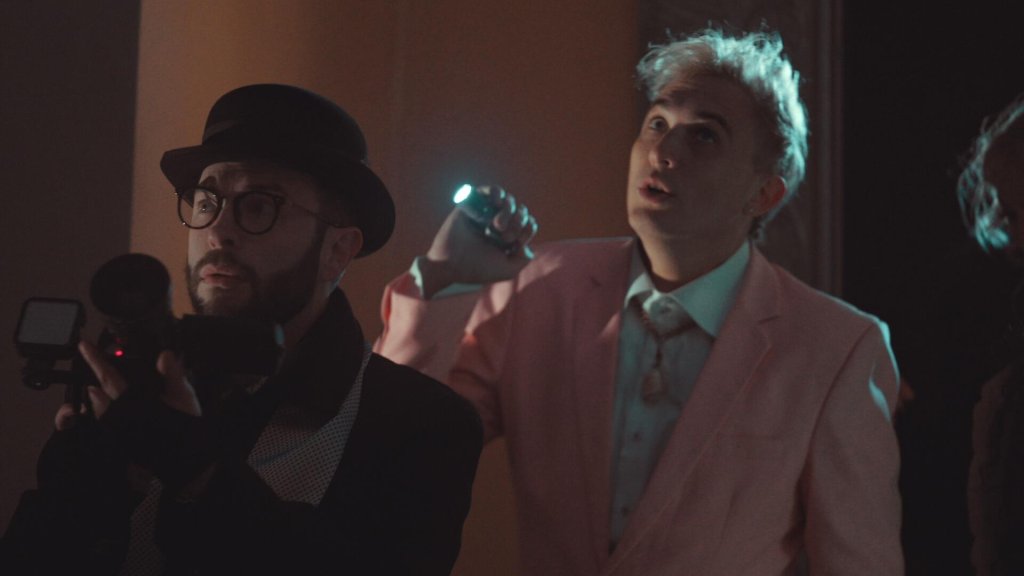
RE: Obviously, we’ve been doing a lot of press junkets on the show. I think what’s so nice is when we talk to interviewers who watch the show, they say, I didn’t expect to cry. I didn’t expect to laugh. I didn’t expect to feel the heart. And for us, character is everything. We’re storytellers. A good portion of [many] paranormal shows somebody opening a door and saying hello. That’s about the depth of the characterization, and we wanted it to go a little bit deeper than that.
DQ: You got to it before I did, but in my experience, very limited experience with ghost hunting shows is that it is some guy goes to a dark, supposedly scary place alone and tries to get spirits to attack him or to scare himself.
DC: To come to the cast for a second, building an ensemble cast for us, is probably the most fun we have. In the paranormal [arena], there are all kinds of experts. Whether it’s psychics or tarot card readers, witches and researchers, tech people, and mediums. So for us, it was so much fun to meet, across the United States, literally hundreds of queer ghost hunters and queer experts in the paranormal. When we got to meet everyone and see into their world, we started thinking, wow, this is a really unique, special world. When we realized that we were going to go to various locations, the scariest, coolest places, everyone had a ghost story. Everyone shares; everyone has that story,” Oh, my goodness, do you remember when or my childhood ghost story was this” in my town? We were really excited to have our talent go out and explore all those stories.
DQ: That really seems to go to the heart of the concept. I think that the tendency in our history in the United States is to make the supernatural scary. It’s something that’s outside of the world, and maybe it’s evil, instead of thinking, “Well, you know, if you’re talking to spirits, aren’t you just talking to people who are no longer on the earthly plane?”
RE: That’s what we go through on a day-to-day basis. If you don’t talk to us to understand us, you are only listening to a larger conversation that doesn’t involve us. If somebody says they’re evil, they’re evil. You haven’t had a conversation. With what “Queer Eye” did, it was out there to say, “Hey, guess what? Gay guys and straight guys can get along as friends. We are there to see things from different perspectives, and if we listen to each other, we become better.” It was the same thing with this show. Why does it always have to be scary? Sure. Is it spooky? It’s always spooky for us when we walk into a dark room, and the lights don’t work, and things go crazy. But at the same time, if you can have somebody with you, like a medium or a psychic, who can connect? And then they say, “Oh, they’re mad because you moved the refrigerator, and they really liked it over there.” Then that’s easy. I can just fix that thing with conversations between people of different communities and different backgrounds. If we don’t have conversations with each other, we won’t ever get to understand each other. The show set out to say, “Maybe we can look at this from a different perspective. Talk to the spirit world and say, “Hey, what’s going on?” and then have that conversation.
DC: There you go.
DQ: Is this really necessary, spirits?
DC: Exactly. Exactly.
DQ: Thematically, it seems like the show, other than normalizing talking to the spirits or the spirit world, is really encouraging, as you said, like with Queer Eye, the conversation between heteronormative people and queer people.
DC: I’ll tell you, Kristen pushed that hard. Kristen was very adamant about this conversation being had in each episode, which would allow us to see both sides and to have tough conversations in moments where people needed to be heard, validated, and seen differently. Our cast, we have been calling the Ghost Hunties, and it’s very sweet and loving because their friendship and their bond grew over the season. Their conversations with all of the townspeople are the individual folks that got deeper and deeper and deeper.
RE: That was a big part of our show, was to say, we don’t want to be insulated and just go to the haunted location and just be there. Tonopah is a very tiny, very cold little town in northern Nevada. It’s small, it’s isolated, and we brought our ghost hunties out. We had a scene that was taking place at a bar, and conversations flowed naturally. Then, this woman started talking to our team about the fact that she was going through an issue: she had a nonbinary child, and she was trying to understand them more. She said it’s hard, and it’s not easy for me, but I’m trying. That sparked a moment and my favorite part of that conversation. I don’t know if you can really hear it in the show, but it became very emotional at the bar because this woman was opening up. People in the bar knew her, and this woman at the end of the bar just stopped and said, “I’m pansexual.”
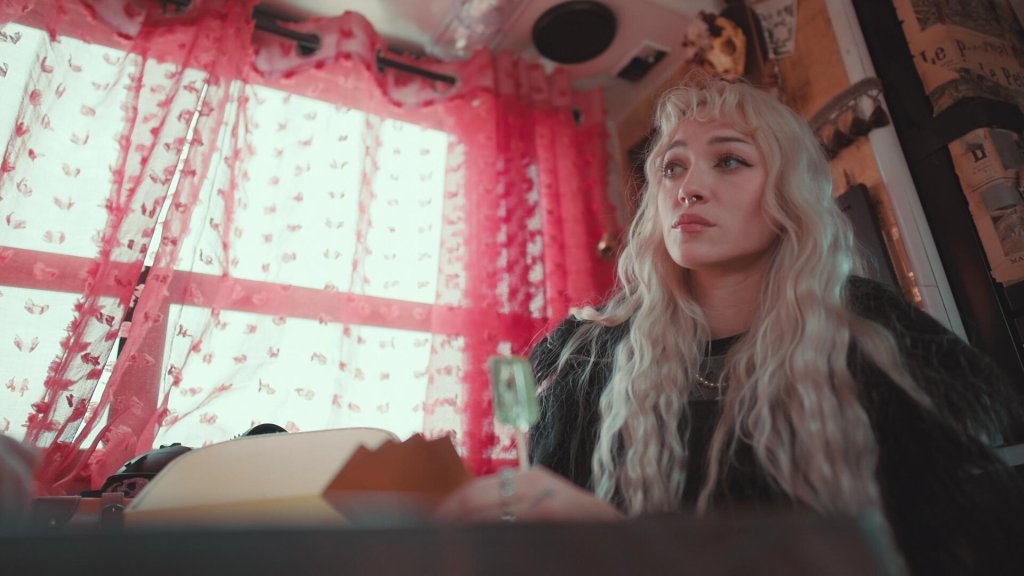
DC: They were comfortable, right? That conversation made everyone else at the bar feel safe, so they could be vulnerable. That’s a big part of what Rob and I like doing in our storytelling: creating safe environments for people to tell their truth and to speak them. Because storytelling is all about me sharing with you and you sharing with me, and hopefully, along the way, we get to grow and laugh and experience life together.
DQ: I think that’s a very good way to look at it. Because I think any type of art is really communication. It’s the artist trying to speak and give an interpretation of what they feel inside or how they view the world.
DC: But that’s been our journey for a long time now at Scout. I love what Logan says in the trailer from one of the episodes. He says, “I don’t know which is worse, having to come out or tell people I talked to the dead.” He’s dealing with both things in his life: being gay and talking to the dead, that’s a heavy weight for someone to carry. But it’s cool because he’s able to share that, and his personal experience helps others continue to grow.
DQ: Would you like to tell me about the cast?
RE: They are so unique. Our casting concert is the zipper. You have to build the zipper and then zip it up, and it has to hold together. During casting, we watched them. I’ve been talking about this a lot. We don’t just watch them in a room, and they perform for us. We are sneaky this way. We’ll pull off to the side and watch from afar to see how they’re interacting with each other when they’re not having to be in front of a camera or being talked to the network executives or ourselves. You watch them come together, and as our shows do, those teams come together. Then we had this moment where we whittled it down from thousands to hundreds and then hundreds to tens. Then we brought them out to LA, and we put them together for a chemistry test. There was a moment where we said, “Okay, well, let’s see your abilities in action.” For myself, I had Ken Boggle, who sat down with me and another associate of ours, another executive producer on the show, and he read my tarot cards, and they were so insanely accurate. Normally, tarot cards are more questions than answers. They were so accurate and so on the money, and so my associate said, “Goosebumps. How does he know so much about you?”
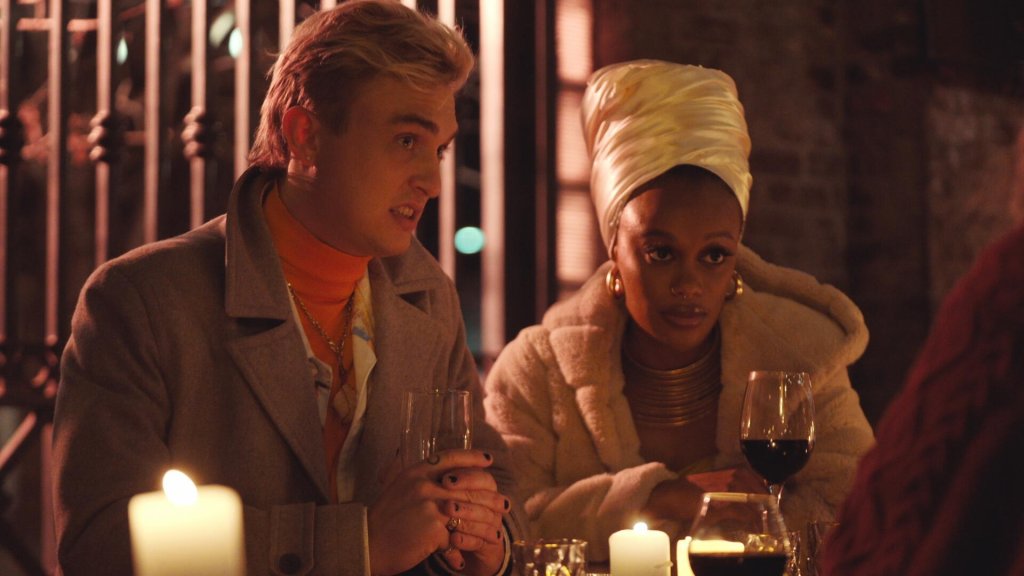
DC: Mine was otherworldly, to be honest with you. I’m gonna go ahead and say this: there was a part of me that was very skeptical coming into the paranormal, right? My Southern Baptist Christian roots, anything outside of that is Satanic. We had a chem test. We brought our top 30 or 40 people together; we’re mixing and matching them. That’s how we built the team. Towards the end of the day, Logan Taylor asked me, can I just take you in the room? I just need to talk to you for a second; I just need to talk to you. So I said, “Yeah, sure.” We went into the room. What transpired, he started out by saying, “I’m not here to give you bad news or tell you something that’s going to change anything. But what I’m here to do is just tell you what it is I’m feeling and what I’m sensing.” And I’m gonna cry. He started laughing and said, “Oh my goodness, I feel this laughter This heavy laughter. Oh, it’s your daddy.” And just to be clear, my dad had just passed ten months earlier, and what Logan told me without getting into detail literally shifted my paradigm of grief.
RE: It was so accurate.
DC: It was so many things that he had told me that were impossible for anyone, any other human being, to know that when it happened, It took me a good week, almost two weeks, to really kind of settle back into myself because the information allowed my grief to finally happen. My dad had a rough exit; his death was rough. So I had been really fighting the grief, and I finally got to grieve. So when we talk about the show, we talk about talking to the dead to help the living. That’s exactly what happened to me. My personal experience was when Logan talked to me and gave me some very strong information and details that I needed to hear at that exact moment. When I was able to hear that, process that, and take that in, I had a complete shift. So That’s what ended up happening. All of our heroes and each of the episodes really have some sort of cathartic experience or, again, a queer shift in their perspective where they see things differently than they did before the ghost hunties showed up.

